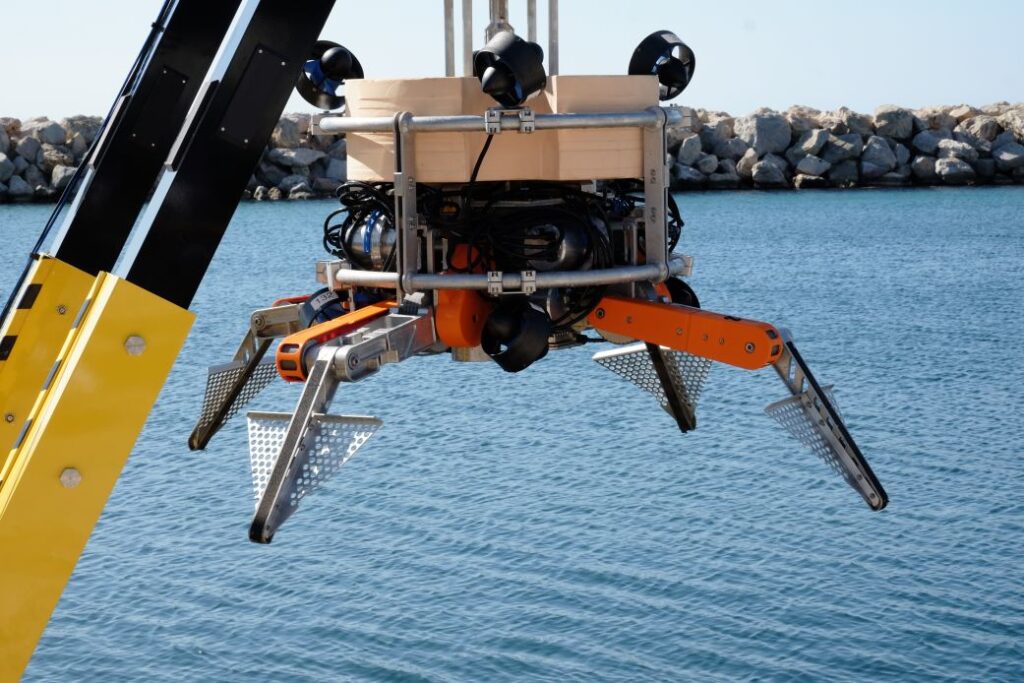Marine litter is a major environmental problem. Abandoned containers and fishing gear can trap or strangle animals, and plastic waste can break down into microplastics, which can release chemicals into the water that get into the food chain. Some research suggests that eating microplastic might even interfere with plankton’s ability to store carbon at the bottom of the ocean, which could impact climate change.
Between 1950 and 2020, 32 million metric tons of plastic accumulated in the ocean, according to one estimate — the weight of over 200,000 blue whales. Without any additional action, that figure is expected to reach 76 million tons by 2040.
A team of researchers and students is trying to change that — with an autonomous diving robot that can detect and retrieve litter from the seabed.
The Smart Grapple, developed at the Technical University of Munich (TUM), in Germany, uses an AI system to identify individual bits of trash using an onboard camera or, in murky water, sonar imaging.
It then grasps the object with its four-fingered hand — capable of lifting items up to around a meter (3 feet) long and wide, and weighing 250 kilograms (550 pounds) — and brings it to the surface. There, the waste is deposited on a small autonomous boat which takes it to the shore for recycling.
Continue reading the complete article on the original source



